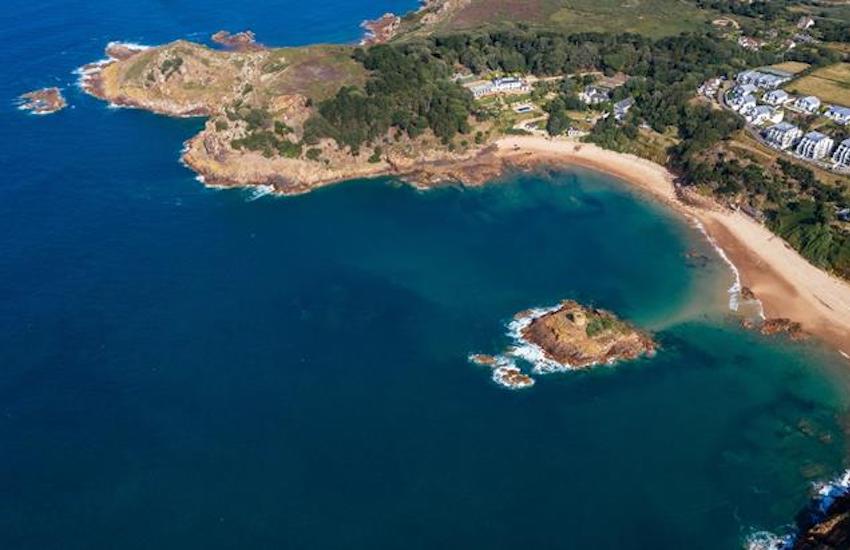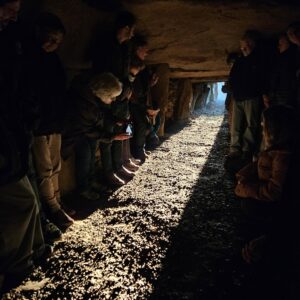
Portelet Bay has been awarded the highest level of marine protection after it was designated a ‘no-take zone’ – the first in Jersey and only the fifth in the UK.
Under new regulations beginning in May, fishing will be banned in the bay and it will be an offence to remove any marine species from the area.
Bass, brown crab, whelks, and lobster populations are in decline in Jersey but the Société Jersiaise, who ‘championed’ the initiative, hopes this new protection will ‘turn the tide’ on biodiversity loss.
The Société said the no-take zone will in turn ‘improve resilience to climate change’ and protect Jersey’s long-term fishing interests.
What is a no-take zone?
No-take zones are a specific type of marine protected area (MPA) where all fishing is prohibited. They can be used alongside conventional fisheries and wildlife conservation management measures to protect marine wildlife and safeguard or improve local fish stocks.
The protected zones can be surrounded by normal fishing grounds, as with Portelet Bay, or can form part of a larger marine reserve.
In Jersey, St Brelade’s Bay and St Aubin’s Bay are part of a network of marine protected areas where dredging, trawling and other mobile fishing practices are banned.
The Portelet no-take zone, which prohibits all commercial and recreational fishing, covers an area of 0.26 km2. This makes up 0.0001% of Jersey’s territorial waters but the hope is that this first small step will lead to greater protection in future.
Improving biodiversity and fish stocks
Jersey’s newest protected area is now one of five no-take zone in the UK, alongside Lamlash Bay on the Isle of Arran in Scotland.
A no-take zone was implemented at Lamlash Bay in 2008 and has seen biodiversity increase substantially over time. Stocks of commercially important species have also improved, and lobsters are now over four times as abundant in the bay.
Research shows that marine animals and plants from highly protected areas, such as no-take zones, ‘spill over’ and enrich the surrounding areas. The hope is that the new zone at Portelet will increase fish and shellfish populations, which will benefit Jersey fishers.
A ‘natural laboratory’ for science
The zone will be monitored for an initial five-year period to assess its benefit to fisheries and biodiversity.
Assistant Minister for the Environment, Deputy Gregory Guida, said: ‘By designating this zone at Portelet, the Government and other key stakeholders will be able to use the bay for scientific research, which will give us further evidence to help maintain fish stocks and ensure sustainable fisheries.’
The Government’s Marine Resources department will also undertake surveys to compare evidence to data collection from Portelet Bay that began in the 1980s.
This ‘natural laboratory’, as described by the Société Jersiaise, will also be used by universities, schools, community groups, visiting researchers and local organisations.
‘It is hoped that the no-take zone will facilitate a measurable change in the environmental and ecological health of the bay,’ they said.
Self-guided snorkel trail
Alongside this, the charity Blue Marine Foundation is developing a new snorkel trail, where users can participate in citizen science projects by recording sightings on an app.
A snorkel trail was established in the no-take zone of Lamlash Bay and has proved popular among locals and tourists.
Deputy Gregory Guida said: ‘In recent years, the marine biology section of the Société Jersiaise has championed the idea of putting in place a space for the study of unimpacted marine ecosystems, to monitor the recovery of species no longer subject to fishing pressures.
‘The prospect of a no-take zone was also considered and approved by the Marine Resources Panel, which includes commercial and recreational fishing representatives.
‘Moving forward, any fishing or taking of marine animals or seaweed will be an offence and we’ll certainly be policing this to ensure the project is a success. I would like to thank States members for their support of this move.’




